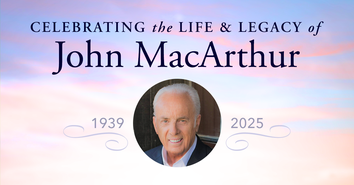How Near is God to Me in This Moment?

How near is God to me in this moment?
I don’t think about it when I have twenty-seven things to do and yet I deceive myself into thinking that I’ll be able to master my list.
How near is He to me in this moment?
It’s not something I consider when I’m scooting five children (on their best behavior) into a row of seats church and my hair is curled.
How near is He to me in this moment?
When scores of friends and acquaintances are patting me on the back for something seemingly noble that I’ve done and I’m receiving their words,
In these moments, this isn’t a question I find myself asking.
How near is He to me in this moment? starts to reveal itself within my internal conversation when I feel uncomfortable with my productivity or in my marriage or my children’s heart issues.
How near is He to me in this moment? feels like something I might could ask when I’m finished flogging myself for something that I’ve missed or over a mistake I’ve made or even a sin that I’ve committed—and even the worst of my mind-lashing doesn’t purge that ickiness and ache out of me.
How near is He to me in this moment? crops up, perhaps, even just a day after I’ve received all the applause from the ones to whom I’ve wanted to give praise and I wake up feeling bone dry from it all, drunk on what was never meant to be my drink.
How near is He to me in this moment?1 is the life-line of the image bearer, the one made in God’s likeness.
And it is the rarely-asked question of the one who has not accepted the grace of these God-imposed pauses.
It is in these harder, hidden places that we can see Him reaching.
His reach happens in minutes, over laundry and dishes and across the car console as we make our hand into an olive branch to our spouse, when no is looking. His reach is a set of eyes during our 3am feeding hour and our 4am cleaning-up-vomit and changing sheets for the third time that night.
His reach is not a result of stingy eyes2 and a scrutinizing glance (as we so often might receive it to be), it’s a mercy-look and a kind whisper3 that we don’t always hear when we’re scolding ourselves.
And His reach moves the heart in hiding to want to look back and, soon, to lock eyes. When we feel His kind “I see you”, a thousand human hands applauding us feels like a loud distraction from that which has truly enraptured us.
This “hidden version” of you doesn’t need more discipline to look longer at God—the hidden you needs to see the layered fire in His eyes for you, when you’re crazy-weak, and you won’t want to look away.
We don’t need another media fast or a longer Lent or more mustered will-power to say no to all the bad things (though, these, in and of themselves can be important steps to take in the right time). We need a long, permissible (though unconventional) look at Beauty4 and we need the open ears of a child to hear what He has to say back to us, about us.
Days filled with intermittent looks at Him who is looking gently and knowingly back at us, and then the hidden and misunderstood pockets of our life become spaces of receiving and becoming beauty.
Three o’clock in the afternoon looks different when I’m not grittingly forcing myself to look at a God who I believe is mostly frustrated with me. Three o’clock in the afternoon looks different, even when I’m tripping over legos and receiving texts from a misunderstanding acquaintance—if I get five minutes of quiet where I can be reminded of how much He enjoys me5, even the weak me.
Three o’clock in the afternoon then moves from being the resented, hidden hour of the day, to the one where I am privately re-upping for another few hours of internally radical living under the expansive Truth of how He sees me.
When I see the truth of how He sees me—when I don’t just read but I experience the gentle Father of His Word, alluring and inviting me (even in the midst of my mess and confusion)—being hidden from the applause of the crowd or the accolades of friends or being thwarted in the promotion I craved, pales in contrast.
When I see Him, seeing me with kind eyes, I begin to crave the hiddenness that offers me those eyes.
My heart starts to move and to grow when I remember again that I’m seen by Him.
I start to feel as if my hiddenness is purposed.

Sara Hagerty is wife to her best friend Nate, and a mother of six, including four children adopted from Africa and two through natural childbirth. Sara writes regularly about life’s delays, finding God in the unlikely, motherhood, marriage, and adoption in her two books, Unseen: The Gift of Being Hidden in a World that Loves to Be Noticed (August 2017) and Every Bitter Thing Is Sweet (2014) and at www.SaraHagerty.net Twitter: @sarahagerty, and Instagram: @sarahagertywrites.
Notes:
1. Psalm 34:18
2. Psalm 86:15
3. Psalm 100:5
4. Psalm 27:4
5. Psalm 18:19
Image courtesy: Pexels.com
Publication date: August 29, 2017
Originally published August 29, 2017.







